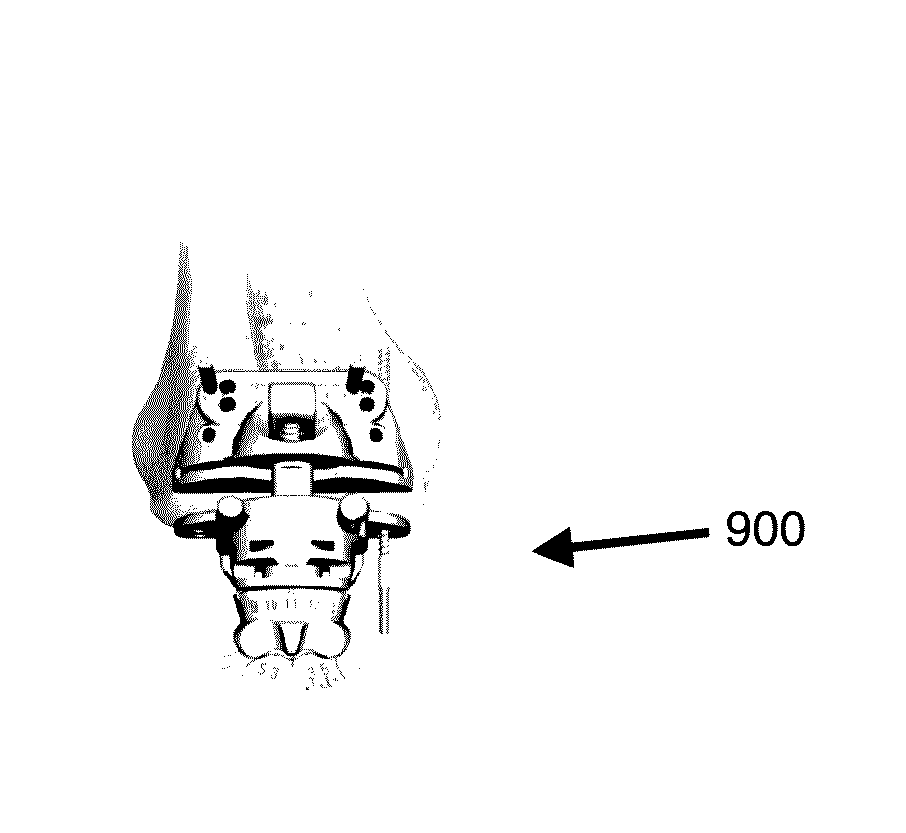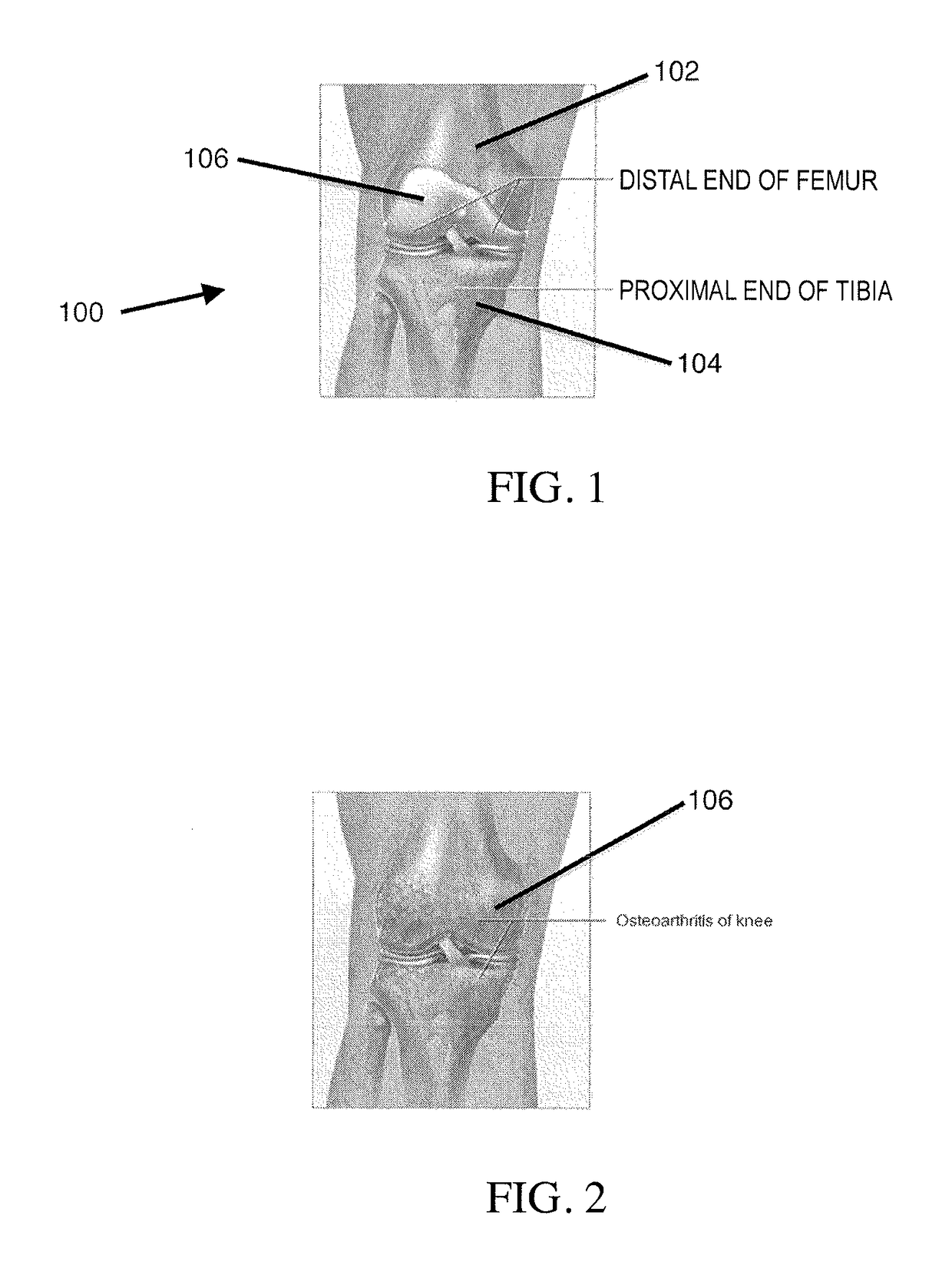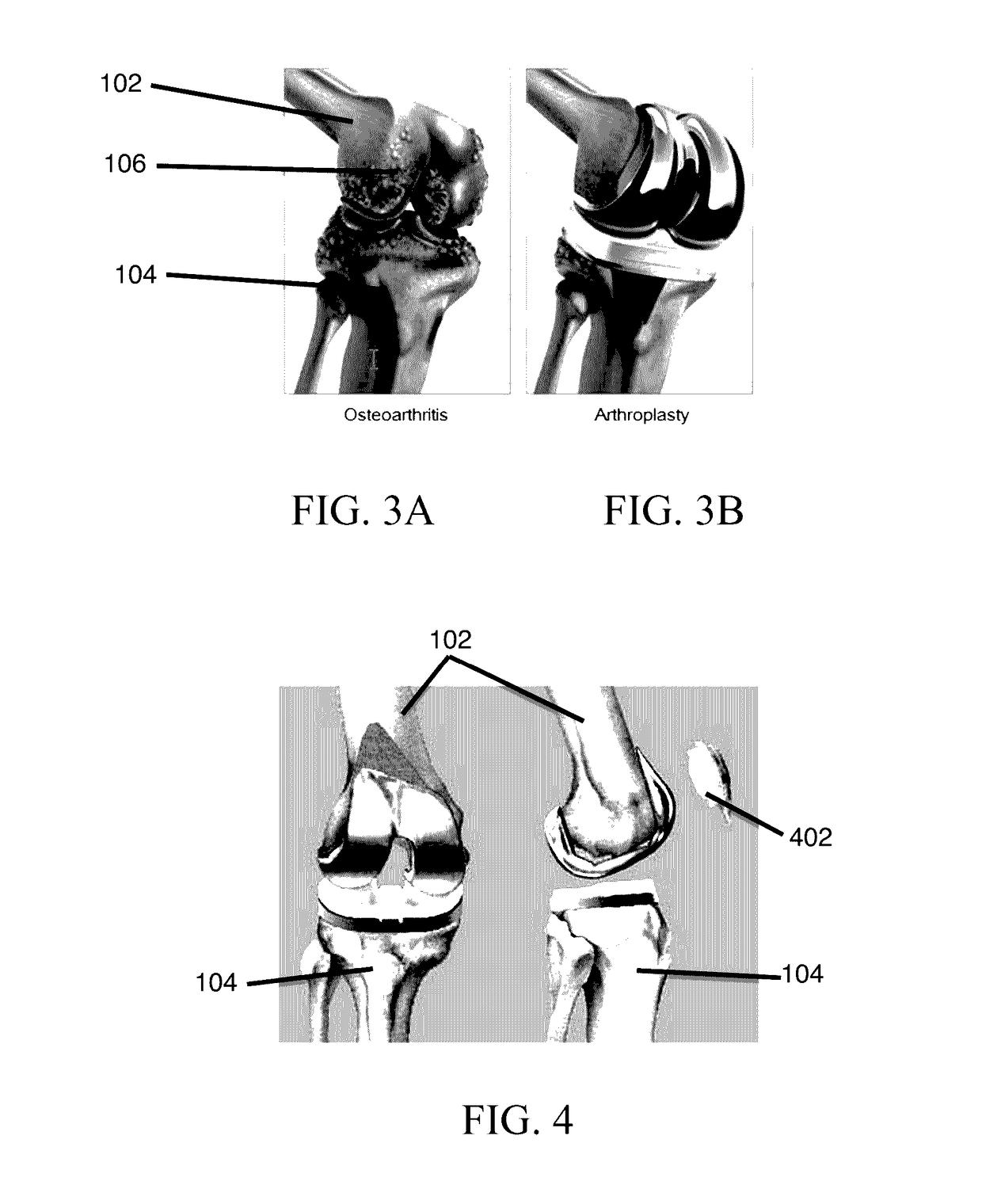Systems and methods for providing alignment in total knee arthroplasty
a technology of total knee arthroplasty and system and method, applied in the field of surgical procedures, can solve problems such as accuracy limitations, mechanical devices, and bone drill guides
- Summary
- Abstract
- Description
- Claims
- Application Information
AI Technical Summary
Benefits of technology
Problems solved by technology
Method used
Image
Examples
Embodiment Construction
[0062]The instant invention includes a novel apparatus, as well as a unique methodology and system, to measure, calculate, and monitor alignment of the long bones of the human lower limb for precise intra-operative bone preparation and positioning of prostheses, particularly with respect to avoiding misalignment of the reconstructed knee joint.
[0063]The systems described herein generally include a plurality of measuring sensor units that can detect their position and orientation in three-dimensional space and communicate this information to a digital data processor, e.g., via a wireless communication protocol. The measuring sensor units described herein can utilize inexpensive, highly accurate, digital components that are able to communicate with software running on a computer processor, personal computer (PC), or hand-held electronic device (e.g., a smartphone or electronic tablet), to accurately determine three-dimensional positioning of the femur and the tibia, as well as the ang...
PUM
 Login to View More
Login to View More Abstract
Description
Claims
Application Information
 Login to View More
Login to View More - R&D
- Intellectual Property
- Life Sciences
- Materials
- Tech Scout
- Unparalleled Data Quality
- Higher Quality Content
- 60% Fewer Hallucinations
Browse by: Latest US Patents, China's latest patents, Technical Efficacy Thesaurus, Application Domain, Technology Topic, Popular Technical Reports.
© 2025 PatSnap. All rights reserved.Legal|Privacy policy|Modern Slavery Act Transparency Statement|Sitemap|About US| Contact US: help@patsnap.com



